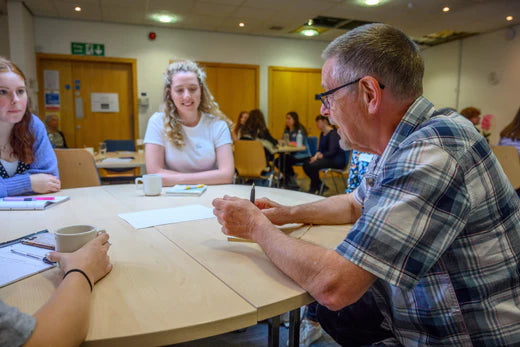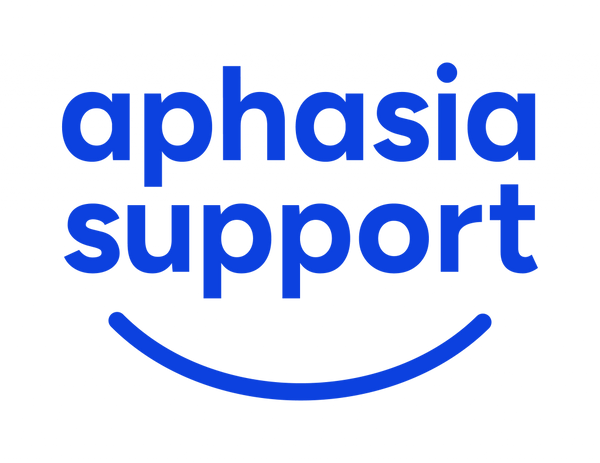Five benefits of volunteer work

The benefits of volunteer work are far reaching. Not only does the vital work volunteers do make a huge impact on the lives of those they help, it also can have huge benefits for the volunteer themselves.
We certainly couldn’t do without our fantastic volunteers here at Aphasia Support. We have so much respect and gratitude for everyone who gives up their time to do vital volunteer work with people who have had a stroke or another kind of brain injury.
Through our charity, our volunteers help those who struggle with communication to reach their goals for both their speech and language, and their confidence and wellbeing.
And the benefits to the volunteer? Let’s take a look:
- Boosting your mental and physical health
In a recent study, 77% of volunteers said that volunteering improved their mental health, with 53% reporting an improvement to their physical health.
Helping others can naturally lead to feelings of wellbeing which can then have a positive impact on your health2.
2. Expanding your social circle
Volunteers also report that they’ve met new people through volunteering, broadening their social circle. Many say volunteering helps them feel less isolated.
Volunteers help our patients feel less alone, and they in turn, feel less isolated as a result. Everybody wins.
- Making a difference
Most people go into volunteering to make a difference. Our volunteers often tell us they feel they are giving something back to the community.
Our user survey responses show us that our volunteers make a hugely positive difference to the people we help, and their families.
- Learning new skills
Many volunteers enjoy challenging themselves to learn a new skill. Our volunteers don’t need any prior experience in speech and language therapy. We provide full training.
Our longstanding volunteers are amazed at how much they know now and are really happy to be able to help others using these new skills.
- Adding to your CV
We’re really lucky to have a range of volunteers from different backgrounds and demographics working with us. Some are retired people who want to give something back to the community.
And some are students at the very start of their careers who want to put some of the skills they’re learning at university into practice. For our students, volunteering with a charity like ours looks great on their CV.
Volunteering helped me cope with grief
Meet Pat Malin. Pat has been volunteering with us since 2021. She’d been through a close bereavement, lockdown and retirement – all within a year.

“ Volunteering helped me move forward, meet new people and learn new skills.”
Pat volunteers at our Barnsley Aphasia Café. The Aphasia Cafes are led by a trained speech and language therapist who runs sessions and activities twice a month for our communities.
“I love the café, the friends I’ve made and seeing people grow in confidence the more they attend. We’re like a little family.”
Volunteering with stroke survivors – who we help
Stroke is the most common cause of aphasia. So, a lot of the people we work with have had a stroke and struggle with their communication.
Although stroke is the leading cause, aphasia can occur after other types of brain injury. People with aphasia can struggle with finding the right words, putting them in the right order, reading and writing, and understanding spoken language.
Some of our volunteers go to visit people in their homes and provide them one-to-one support to work on their communication goals.
We also have volunteers to help run our aphasia cafes.
Aphasia Café Volunteers
Our Aphasia Café volunteers give up a couple of hours of their time twice per month to help us run our cafes.
They help with:
- Making teas and coffees for the people who attend our cafes, and their carers
- Supporting the speech and language therapists as they deliver their sessions
- Chatting with the participants to make them feel welcome and listened to
Our volunteers don’t need any prior speech and language experience. We provide full training.

